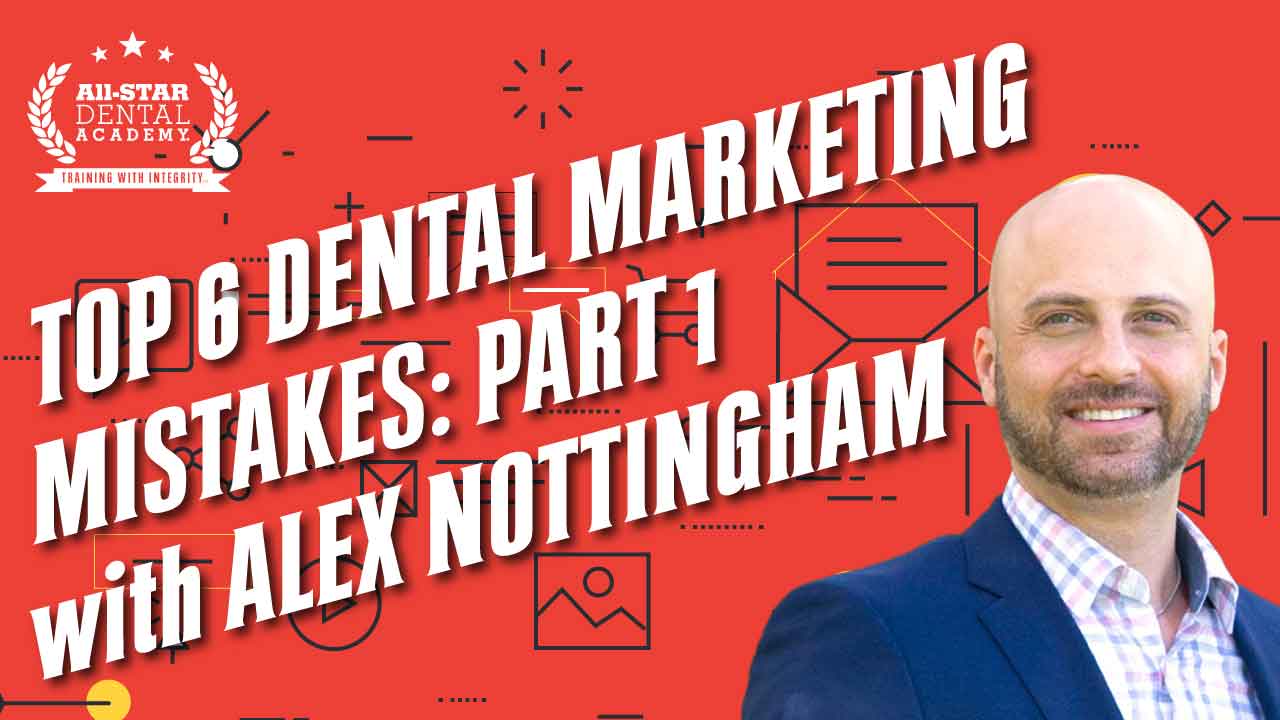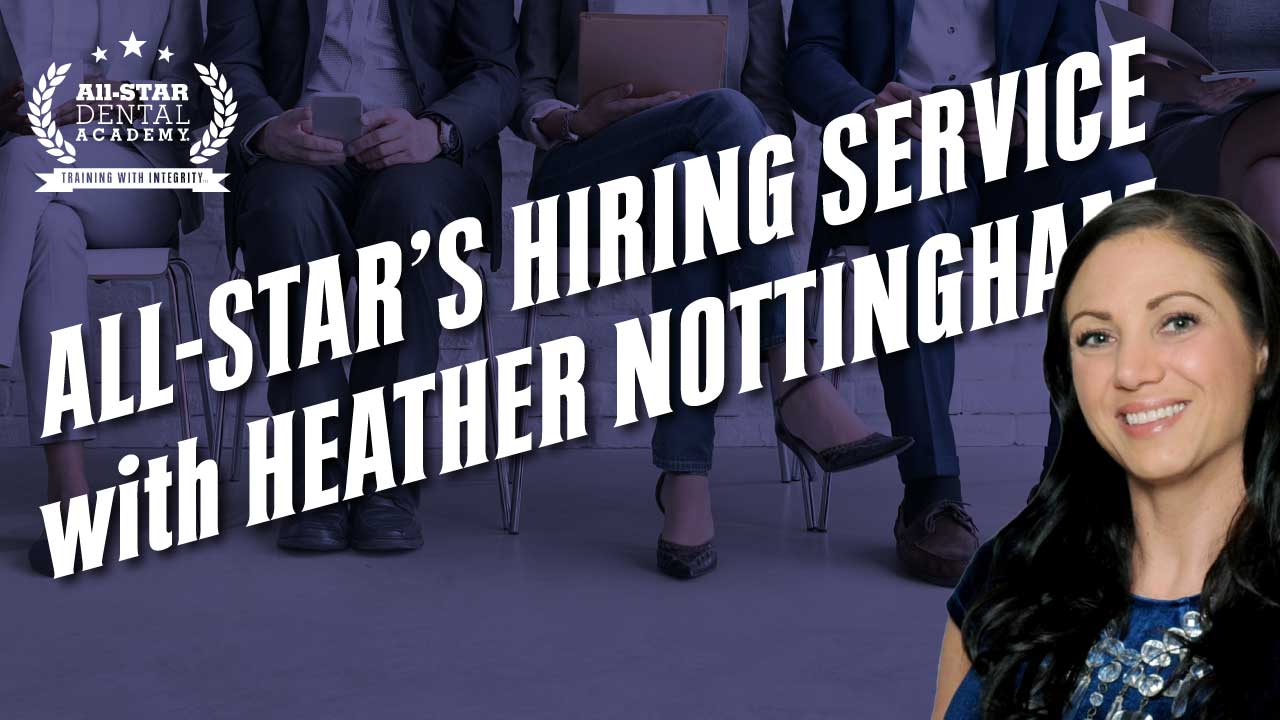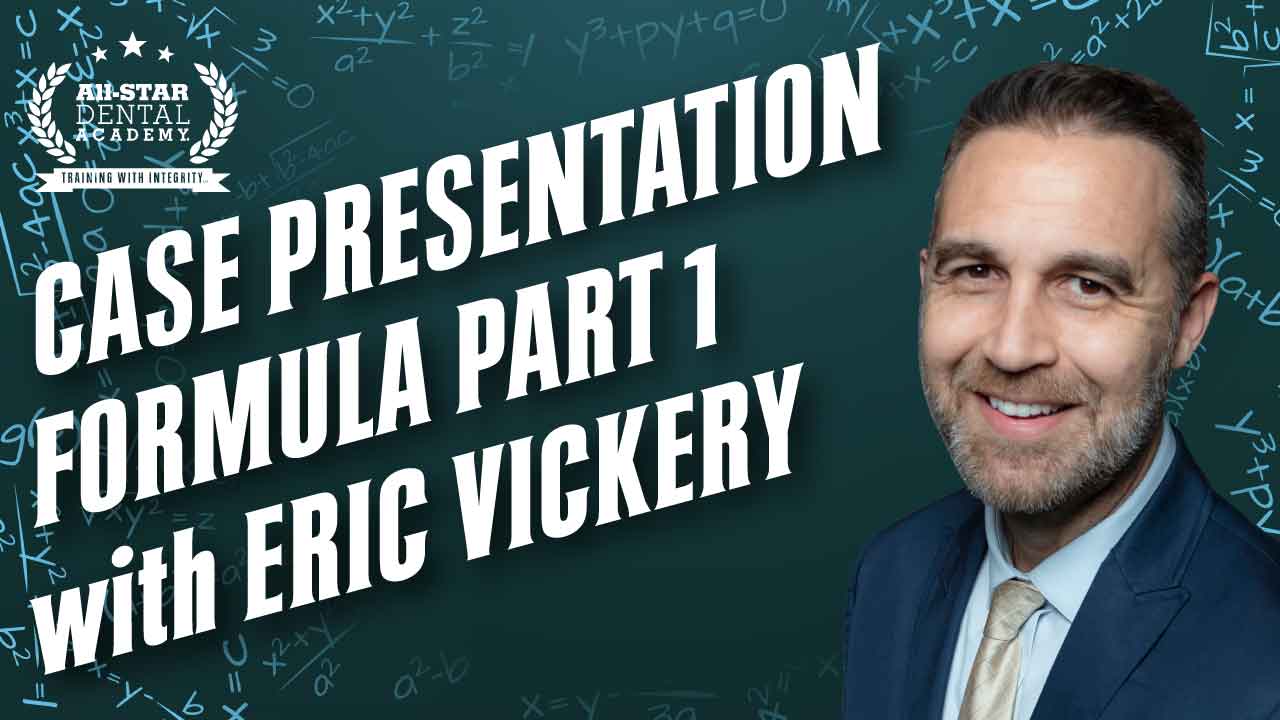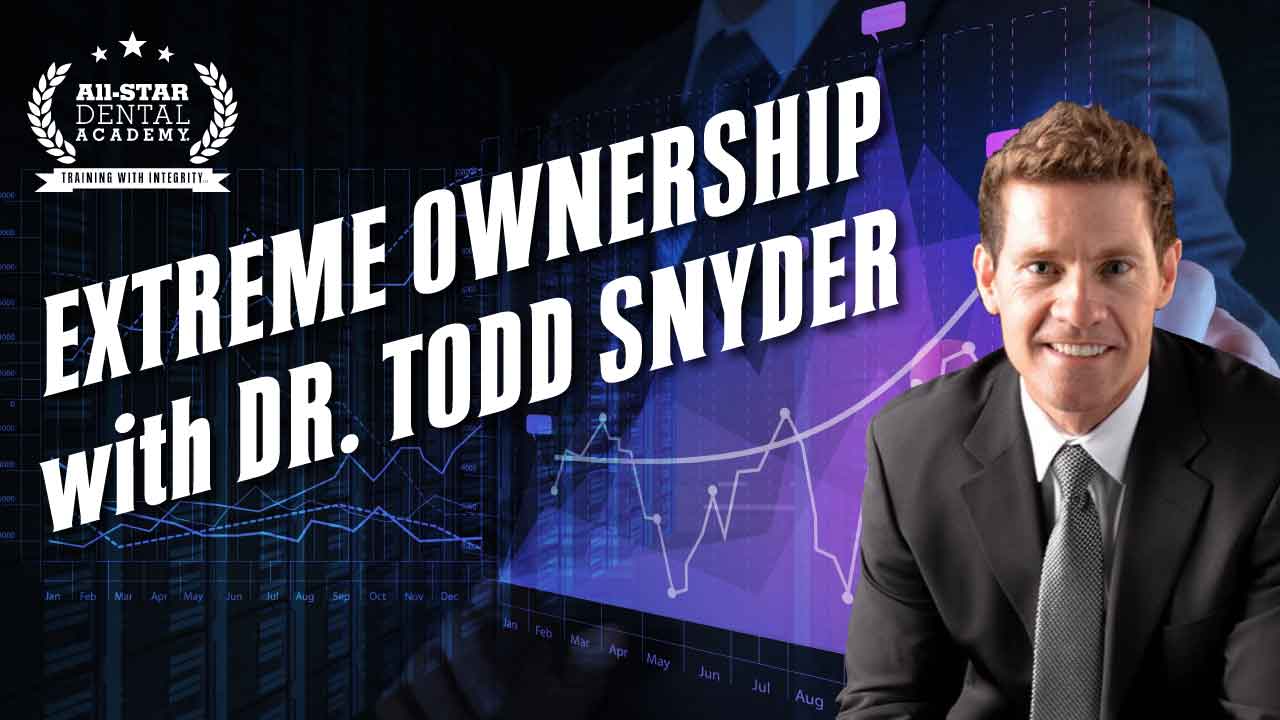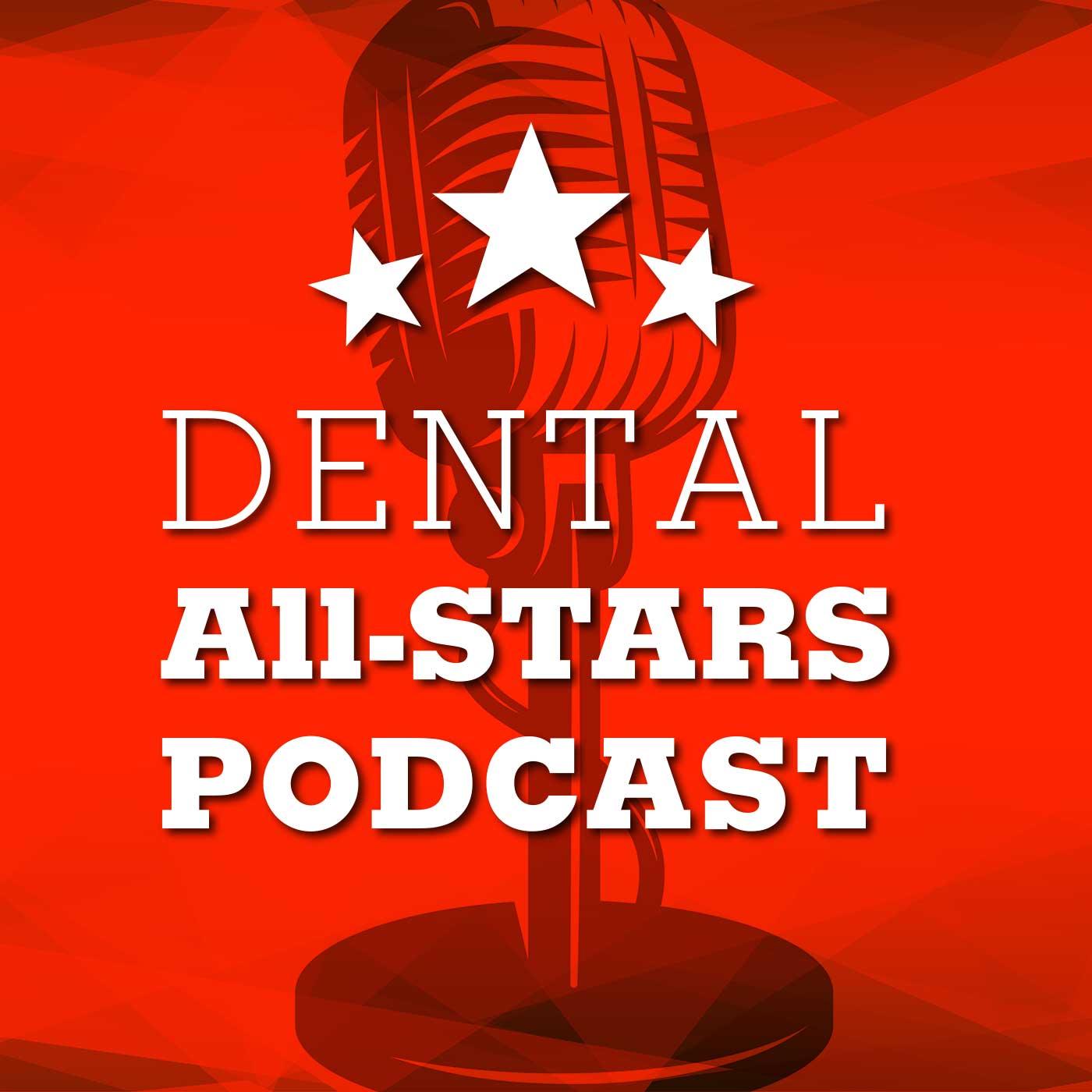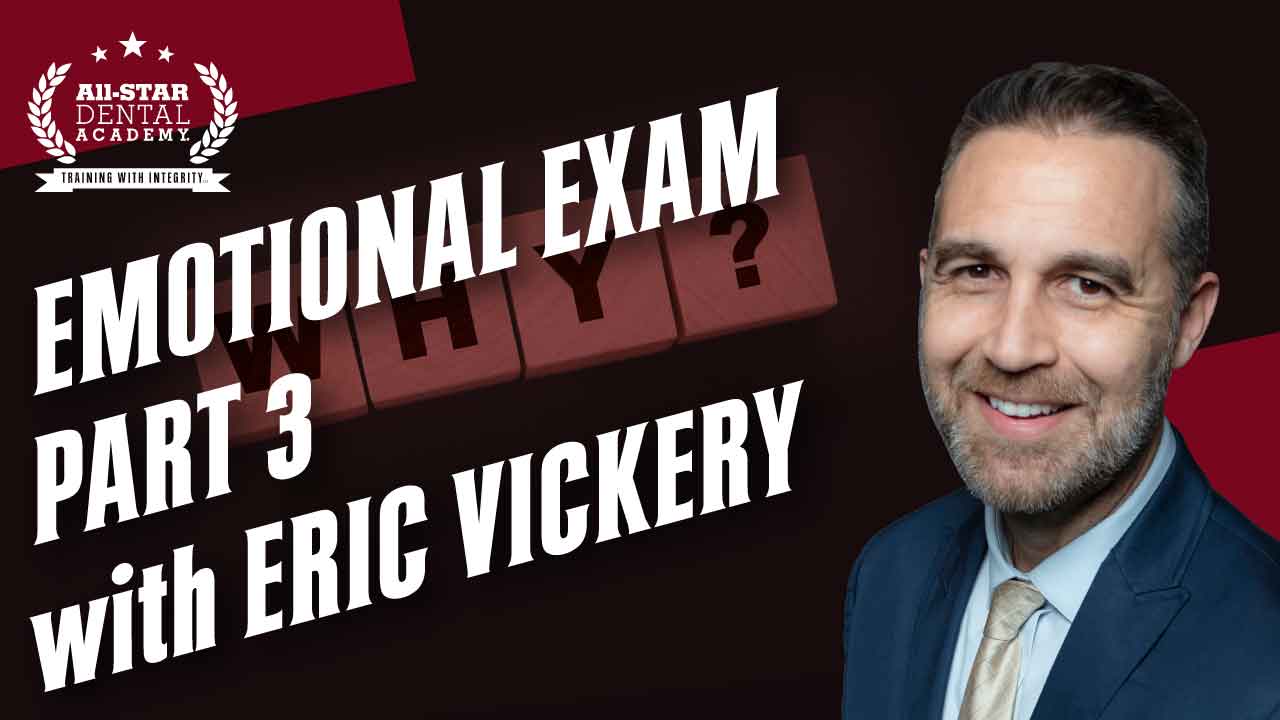Disney is known as the star example in customer service. Is it? Granted, they do a ton of activities well, but even the great Disney fails in many aspects of the customer experience. In this podcast, Alex Nottingham, JD MBA, CEO of All-Star Dental Academy will examine the good, the bad, and the ugly with Disney. How does the Ritz Carlton compare, and what about corporate dentistry? You will learn how to take the best from these companies and do even better! Unlike Disney and corporate dentistry, you can think outside the box. You are not beholden to shareholders. You can achieve dental practice excellence.
HIGHLIGHTS
- [01:44] Disney’s Positive Attributes
- [02:14] Disney’s Bad & Ugly
- [04:55] Corporate Dentistry
- [07:22] The Ritz Carlton
- [09:35] Make the patient experience predictable
- [11:13] Cross-train and think outside the box
- [13:29] Dental practice excellence
RESOURCES
EXPERT
Alex Nottingham JD MBA is the CEO and Founder of All-Star Dental Academy®. He is a former Tony Robbins top coach and consultant, having worked with companies upwards of $100 million. His passion is to help others create personal wealth and make a positive impact on the people around them. Alex received his Juris Doctor (JD) and Master of Business Administration (MBA) from Florida International University.
TRANSCRIPT
00:00:11:13 – 00:00:34:28
Welcome to Dental Allstars. Our topic for this podcast is Don’t Be a Disney Dental Practice. We recently went on a trip together to Disney with my wife, my son and ever since I was a young child, my father would take me to Disney. He loved Disney. I love Disney. I think he loved Disney even more than I do.
00:00:35:04 – 00:01:01:09
He just can’t stop when it comes to the rides and the experience. Nevertheless, as a consultant, I’m always analyzing businesses, seeing how we can learn from them, how they can be better, and more importantly, how we can be better as a result. And on this recent trip, the same thing happened to me the last time I went to Disney, and it all happens at the restaurant.
00:01:01:12 – 00:01:23:04
For some reason, they had some issues with the restaurants, but over multiple periods of time. So what happened is we like to change our table sometimes. Let’s say they have a regular table. We want a booth in order to ask for that. I say, Hey, can we have the booth? They go, Let me put you back in the queue.
00:01:24:03 – 00:01:44:00
Like they couldn’t make that decision. And there are all these open tables. They had to go back to the queue and then you had to wait to resolve the situation. That was irritating. And so I started thinking about some of the good things and the bad things and the ugly things when it comes to Disney. The good things first.
00:01:44:14 – 00:02:14:06
Look, there are books, case studies, and even a Disney institute teaching you how to be like Disney. And Disney has an incredible level of detail as to what they produce. I mean, you can see the workers cleaning the do off of light posts and fixtures on the streets. They’re pushing the water off the sidewalk. I mean, it’s incredible.
00:02:14:21 – 00:02:47:19
Their processes, their systems. They can provide a predictable, consistent experience all across the Disney product line and service line. And that’s something that we can learn from. The bad with Disney is it’s supply and demand on steroids. And what that means is they can charge a lot of money. And it’s becoming very difficult for the mere mortal to afford to go to Disney and have a great experience.
00:02:48:02 – 00:03:24:07
That’s business, right? People will pay for it. Supply, demand. And I wonder, when it came to the experience of the restaurant and whether their team is given the authority to think outside the box because they can’t adjust to something that does not fit their structure or training protocol. I remember this quote by Henry Ford when he created the Model T and he said, Any customer can have a car painted any color that he wants as long as it is black.
00:03:24:25 – 00:03:45:22
So maybe they’re following in Henry Ford’s guidelines. They say in their core values about your guests and creating an amazing experience for you. So I find it doubtful that they would like that to happen. I just think that’s a product of the fact that they don’t give their employees a lot of wiggle room to think outside the box.
00:03:47:00 – 00:04:23:05
The ugly thing that I wonder with Disney is, was this Walt’s dream where Disney became this huge behemoth and for some, it’s not affordable. But also the experience is difficult with these huge wait lines, with this bureaucracy as a publicly traded company. They are at the mercy of their shareholders. Now, Walt developed Epcot, for example, as a concept for this early development of the Walt Disney World.
00:04:24:02 – 00:04:55:06
And he created this as a real potential community. That will be an example of how urban living could occur. It was known as Epcot, as I mentioned, and it’s an acronym that means the experimental prototype community of tomorrow. So it was really designed to be a real city. But when Walt died in 1966, Epcot, this concept was abandoned and it wasn’t designed or released as a feasible operating city.
00:04:55:24 – 00:05:23:20
So again, the founder’s intent has changed. And what about dentistry? What about you? What about these? You have smaller, newer, bigger practices. Let me talk about corporate dentistry for a moment. These big corporate practices. Now, one of the advantages that they have is they have economies of scale, which means, much like Disney, that there is cost advantages that they can take advantage of and efficiencies.
00:05:24:04 – 00:05:55:12
They can increase production and lower costs. And this happens because costs can be spread out over a number of practices. They also have large buying power. They have expert consulting from lawyers, marketing professionals, human resources, leadership. They have venture capacity and capital and investors and they have refined systems and processes for everything, just like Disney. So those are some advantages that the larger corporate practices have.
00:05:55:13 – 00:06:25:13
Now, what are the disadvantages of the larger businesses? Well, again, just like Disney profit motive by law, a business, public business or even a private business that has shareholders, you legally have to be motivated to develop profit and the shareholders want to make money. In the short term, they made an investment. And so you’re thinking, do I provide a better patient experience or make more money?
00:06:25:21 – 00:06:49:24
If there is a weighing factor here or I know I can build a better patient experience, but it will take time to show a result. Can they stick with that? They’re slow to change and adapt because of their size. And as I mentioned, it’s harder to stick with their long term vision or set of values that they want to convey to all the employees.
00:06:50:21 – 00:07:21:10
Now, sometimes Silicon Valley can do that because they have a lot of money and they have this ideal for whatever reason, or often with Silicon Valley, the principle creator, usually an engineer, still owns much of the company and is making sure that their values are set. Whereas corporate, it’s really many of them, it’s efficiencies. We know if we buy out a lot of practices, we can make them a lot more efficient.
00:07:22:04 – 00:07:53:16
And that’s the idea. And cut costs. Now let’s compare corporate practices, Disney to the Ritz-Carlton. What’s really fascinating about the Ritz is that their whole thing is customer service. And I love staying at the Ritz. And the Ritz invests a lot in training. For example, and we talk about this in our webinars is that an employee that’s looking to do phone training cannot touch the phone without 90 days of phone training.
00:07:53:16 – 00:08:17:03
They know the costs of the mistakes. They want to make sure the experience is phenomenal all throughout the Ritz-Carlton properties. One of the really interesting aspects in this could solve the Disney problem is each employee at the Ritz has the authority to use up to $2,000 to make things right for the guests without having to go to management.
00:08:17:29 – 00:08:44:04
In addition, the Ritz. Everybody’s cross-trained in many capacities. They can think outside the box. So in my scenario, if I wanted another table that was open up the table, they look perplexed. And I and I’m picking on the restaurant service at Disney. But there are other areas, too, whenever you ask them a question that’s outside the box. For example, my son lost his magic band.
00:08:44:05 – 00:09:05:22
What do you do? I don’t know. You have to go to guest services and that’s going to be, you know, a mile hike over here. And that’s going to take 2 hours until the issue is resolved. So how do we empower our team? While the Ritz does not. Disney. What about you? Your practice. What can you learn from Disney?
00:09:06:08 – 00:09:35:27
Well, you can learn to make the entire experience predictable, the patient experience, all your systems. Think about it. Is the patient experience consistent from marketing your website, your marketing materials, to answering the phone? Is your team pleasant? Are they well-trained? Do they build rapport? And then as that continues to the patient experience, when they come in, is everybody nice and greeting them?
00:09:35:27 – 00:10:03:27
Is their system and process and ultimately til case acceptance, it’s got to be consistent. Do you have that consistency that Disney does or that corporate does in their systems? Is it a predictable experience? Either it’s a predictable good experience like the Ritz, or in some cases in other companies it’s a predictable, bad experience. Just be predictable. Just be consistent in what you do.
00:10:04:19 – 00:10:36:28
Are you constantly training? Do you have that attention to detail? And one of the aspects of training is onboarding. Do you onboard each roll effectively and quickly? And what we teach at All Star is you should be onboarding your team within 30 days. They should be up to speed, not just on departmental activities like hygiene front office, but also on phone skills, broken appointments, the patient experience, verbiage and so on.
00:10:37:08 – 00:11:12:25
All those aspects should be onboarded quickly. In addition to onboarding. You also have comprehensive training. This is where you are always training because typically an office may onboard right away or quickly. But then what happens over time? Are you training in customer service every week? I know many dentists believe it’s important, but every week are you training to improve your patient experience?
00:11:13:00 – 00:11:42:21
Role playing. Working on these aspects. Now don’t do what Disney does. You want to cross-train? You would like to make sure that you’re not monolithic. That your team is not monolithic, that they can choose different areas. That they can make the patient okay, that they don’t have to pass them along or get back to them. That everybody can make the experience wonderful for the patient, be able to change quickly.
00:11:43:04 – 00:12:06:12
Being a smaller practice or a smaller DSO, you can change quickly. The larger you get, the more bureaucracy there is, which requires a stronger vision and commitment. Now it can’t be done. As I mentioned, the Ritz is a big company. They make sure that patient service, the patient experience or in their case, a customer experience is paramount in everything they do.
00:12:06:23 – 00:12:30:22
And many other companies are doing a great job at that Starbucks and others. So it can be done and not going to make an excuse for larger companies. I’m just saying that larger companies have the disadvantage of that pressure from shareholders. Think outside the box. Empower your team like the Ritz. Have them make decisions or allow them to make decisions to make the experience right by the patients.
00:12:31:14 – 00:12:58:17
I give examples in the training often about verbiage versus scripts. Now we all would love that script. What do I say? The problem with scripts is that if there’s a scenario that doesn’t fit what the script is designed to do, that the team member doesn’t know how to handle it. So if you focus more on verbiage, on role playing and practicing, there’s areas that you can insert the verbiage where appropriate.
00:12:58:28 – 00:13:29:01
You’re thinking outside the box, you’re building rapport with the patients and you’re building trust, which is critical also as a solo practitioner or smaller practice, you’re typically free from the pressures of shareholders. You’re able to do what you love, and this will pay off in many ways. What I like all of you to do, there’s a next step if you haven’t already.
00:13:29:16 – 00:13:55:06
Take a listen to our webinar, Dental Practice Excellence, and I’ll leave a URL in the show notes. I discuss systems in more depth and how to train your team effectively on phone skills, verbiage, reducing broken appointments and increasing team retention and buy in. The URL is all star dental academy dot com slash free training, as I mentioned, I’ll put it in the notes.
00:13:56:01 – 00:14:11:25
Please follow us on Apple Podcasts and Spotify and leave positive reviews for us. This helps us help others just like you and keep creating amazing content. And until next time, go out there and be an all star.
00:14:12:10 – 00:14:27:04
We hope you enjoyed this episode of Dental All Stars. Visit us online at all star dental academy dot com.




